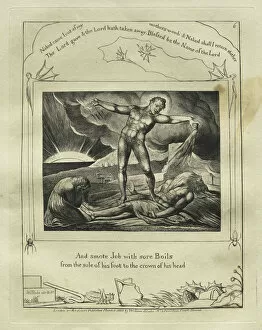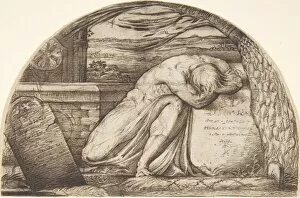William Blake Collection (page 9)
William Blake, a renowned British artist and poet, left an indelible mark on the world of art and literature
All Professionally Made to Order for Quick Shipping
William Blake, a renowned British artist and poet, left an indelible mark on the world of art and literature. His works spanned various mediums, from paintings to illustrations and poetry collections. One such masterpiece is "Hermes, " painted by Jonnard in 1886, which captures the essence of Greek mythology with its depiction of the messenger god. Another notable illustration from Blake's collection is "The Lamb" from Songs of Innocence and Experience. Created between 1770-1820, this piece showcases his unique style that combines innocence with profound symbolism. In contrast to the gentle nature portrayed in "The Lamb, " Blake also explored darker themes like Dionysus and the Maenads in his painting from 1901. This work delves into ancient Greek mythology once again but focuses on wild revelry and chaos associated with Dionysian cults. Blake's artistic prowess extended beyond paintings as seen in his hand-coloured relief-etching watercolour rendition of "The Lamb" dating back to 1789. The meticulous attention to detail highlights his mastery over multiple artistic techniques. "The Tyger" is another iconic creation by William Blake circa 1825 that showcases his ability to evoke powerful emotions through words alone. This poem explores themes of creation, destruction, and the duality within human nature. Beyond his creative endeavors, William Blake resided at 23 Hercules Road in London until he passed away in 1827. Frederick Adcock captured this historical location through a captivating artwork created in 1912. One cannot discuss William Blake without mentioning some of his literary contributions such as "The Last Judgment. " This thought-provoking piece reflects both European influences and English sensibilities while exploring moralistic themes surrounding judgment day. Blake's talent was not limited to showcasing only his own writings; he also illustrated works by other poets like Thomas Gray's poems including "The Fatal Sisters" (1797-98) and "The Triumphs of Owen" (1797-98).











































